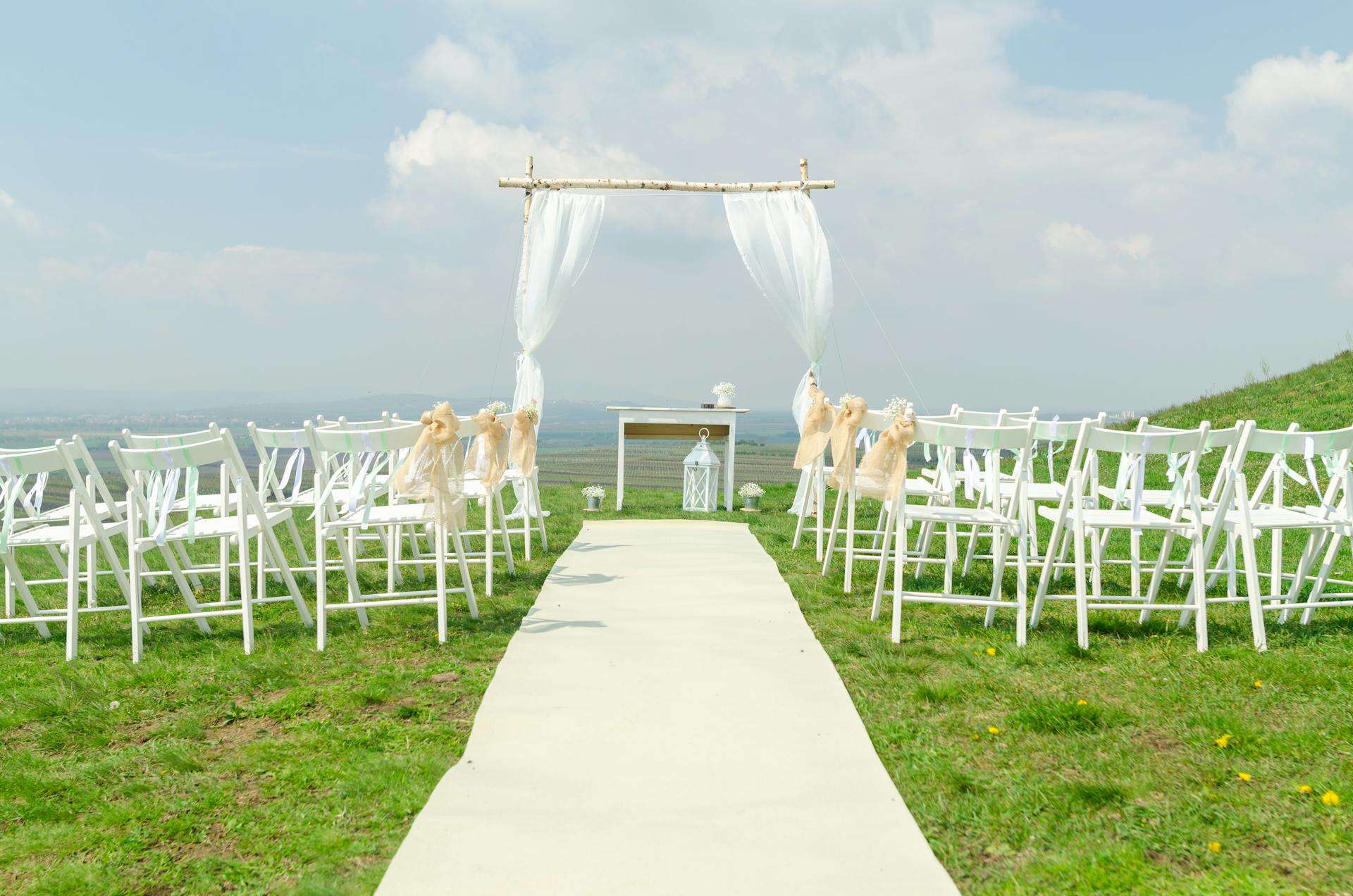Planning a wedding is a journey that can vary greatly depending on several factors. While the average couple spends 12 to 18 months organizing their big day, the timeline can differ based on a range of variables. Understanding these factors can help you determine how much time you’ll need to plan your dream wedding and how to prioritize your tasks accordingly.
In this article, we’ll explore the key factors that can impact how long wedding planning takes, so you can be better prepared to manage your time and expectations.
1. Venue Availability
One of the biggest factors that will dictate your wedding planning timeline is the availability of your chosen venue. Some venues, particularly popular locations or those with limited capacity, are booked out a year or more in advance, especially during peak wedding seasons (spring and summer). If you’re set on a specific venue or date, you’ll need to allow extra time to secure it.
For those who are more flexible with their wedding date or are willing to consider alternative venues, this factor may not significantly impact the planning time. Choosing an off-peak date or a less traditional venue, such as a private estate or local park, can reduce the waiting time.
2. Guest List Size
The number of guests you invite will have a direct effect on how long it takes to plan your wedding. A large guest list means more logistics—more invitations, more seating arrangements, larger catering orders, and more coordination with vendors like florists and entertainment. A wedding with 200 guests will inevitably require more planning time than an intimate ceremony with 30 guests.
If you’re hosting a larger wedding, starting the planning process earlier will help you avoid last-minute stress and ensure all the details are carefully managed.
3. Wedding Date and Season
The time of year you plan to get married can also influence your planning timeline. Peak wedding seasons, which typically occur in spring (April-June) and fall (September-October), are in high demand. As a result, vendors and venues are likely to be booked far in advance. Planning a wedding during this period will often require a longer timeline to secure the professionals and locations you want.
In contrast, getting married during the off-season (winter months or early spring) may allow for more flexibility. Not only will you have a better chance of securing your preferred vendors, but you may also benefit from off-peak discounts, allowing you to plan your wedding in a shorter time frame.
4. Complexity of Your Vision
The level of detail and complexity you envision for your wedding will significantly affect how long planning takes. If you’re planning a simple, low-key wedding with minimal décor and few personalized elements, your planning time will be shorter. However, if your vision includes intricate designs, custom décor, elaborate entertainment, and multiple vendors, you’ll need more time to execute your plans.
Destination weddings, themed weddings, or weddings with elaborate production elements (such as lighting, floral installations, or custom-built backdrops) require careful coordination between multiple vendors, adding more complexity to the timeline.
5. Vendor Availability and Selection
Your vendors play a key role in bringing your wedding to life, so securing them early is essential. Highly sought-after professionals, such as photographers, florists, and caterers, often book out a year or more in advance, especially for popular wedding dates. The more specialized or renowned the vendor, the earlier you’ll need to contact them to lock in their services.
Additionally, if you’re located in a small town or rural area, you may have fewer vendor options to choose from, which could extend the time it takes to find the right fit for your wedding. On the other hand, couples in major cities with a wide selection of vendors may be able to book professionals closer to their wedding date.
6. Budget Constraints
Your budget can also impact how long it takes to plan your wedding. If you’re working within a tight budget, you may need to spend extra time finding affordable vendors, comparing prices, or searching for cost-saving alternatives. A limited budget might also mean you’ll need more time to DIY certain elements, such as invitations, centerpieces, or décor, which can extend the planning process.
Conversely, if you have a larger budget and can afford a wedding planner or hire a full-service vendor team, the process may move more quickly, as professionals can handle many of the details on your behalf.
7. Availability of Help
Planning a wedding is no small feat, and the amount of help you have can affect how long the process takes. Couples who hire a wedding planner can delegate many tasks, which helps reduce the overall planning time. A wedding planner can handle vendor coordination, design elements, and logistical details, allowing you to focus on the bigger picture and enjoy the experience.
On the other hand, if you’re handling all the planning yourself or relying on friends and family for assistance, you may need to allow more time to ensure everything is done properly. DIY weddings can be rewarding, but they also take more time and effort to organize.
8. Legal and Cultural Requirements
If you’re planning a wedding that incorporates specific legal, cultural, or religious traditions, this may require additional time to coordinate. For example, destination weddings often involve legal paperwork and local requirements that can take several months to process. Likewise, if you’re including a religious ceremony, there may be pre-wedding requirements (such as premarital counseling or classes) that need to be scheduled in advance.
Couples who are planning a wedding that blends multiple cultural traditions may also need extra time to ensure the ceremony and reception reflect both backgrounds appropriately.
9. Personal Schedules and Life Events
Lastly, your own personal schedule and other life events can impact how long it takes to plan your wedding. If you’re juggling wedding planning with work, school, or other commitments, you may need to extend your timeline to avoid overwhelming yourself. Major life events, such as moving, changing jobs, or welcoming a new family member, can also affect how much time you have available for planning.
Giving yourself more time to plan if you’re navigating other big events will help reduce stress and allow you to enjoy the process.
There’s no one-size-fits-all answer to how long it takes to plan a wedding. The timeline will depend on several factors, including the venue, guest list, budget, and complexity of your vision. By understanding these key influences and setting realistic expectations, you can create a wedding planning timeline that works for your unique needs. Whether you’re planning a grand celebration over 18 months or pulling together an intimate ceremony in a matter of weeks, staying organized and prioritizing what matters most will help ensure a beautiful and memorable wedding day.





